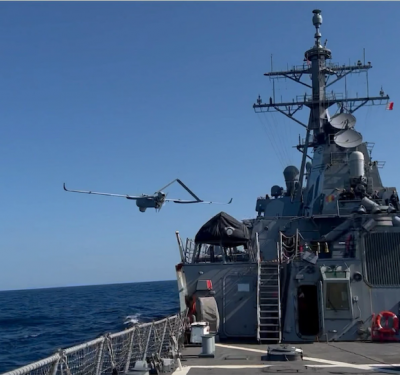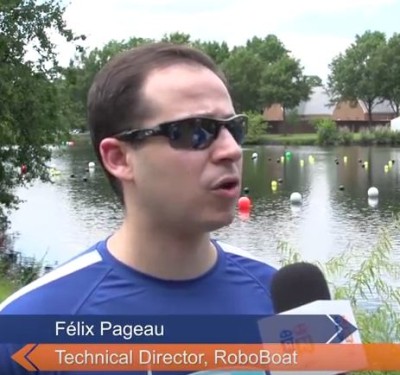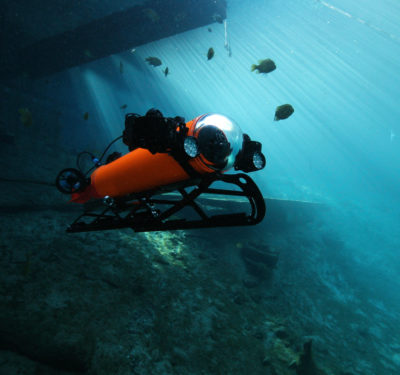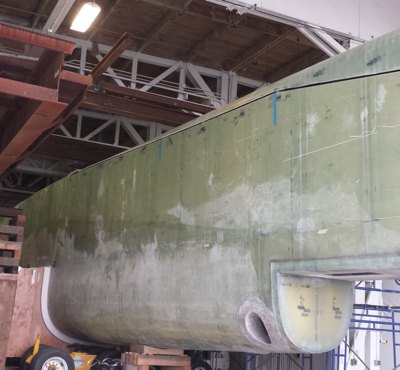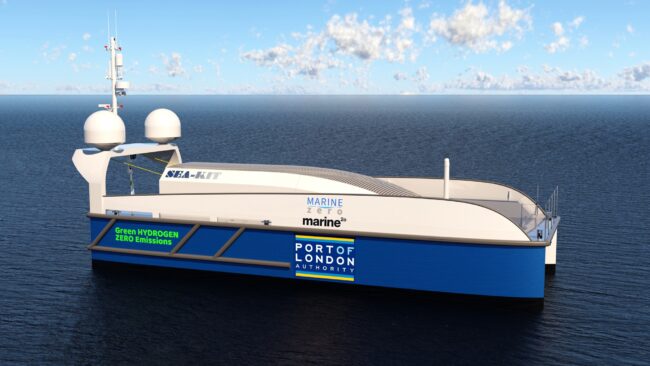
ESSEX, United Kingdom—SEA-KIT International has won funding from the Zero Emissions Vessels and Infrastructure (ZEVI) competition to design and manufacture a hydrogen fueled unmanned surface vessel and refueling station.
The company will partner with maritime decarbonization company Marine2o to build land-based infrastructure to produce green hydrogen, via renewable energy and the electrolysis of water, as part of the project.
Dubbed ZEPHR , for zero emissions ports hydrogen refilling survey vessel, the project aims to extend vessel operation for port operators and stakeholders through complete energy transferal, from readily accessible green electricity to 100% green hydrogen production, compression, storage and dispensing.
Engineering design and sustainability specialists Marine Zero will support Marine2o with regulatory compliance and the design and integration of the dispensing facility. The Port of London Authority (PLA), a consortium partner, will host the hydrogen refilling station on the River Thames in London and subsequently operate the ZEPHR USV.
“Our support of this exciting project underlines our commitment to creating a net zero future on the tidal Thames,” said John Dillon-Leetch, PLA’s port hydrographer. “Embracing innovation and new fuel technologies utilized on ZEPHR will enable us to be more sustainable and efficient in the production of the essential hydrographic data and products that we provide to all mariners on the Thames.
“The five-year project will also support environmental monitoring, academic and industry research programs as well as feeding into the Maritime Hydrogen Highway program—all key elements of the Thames Vision 2050, supporting the PLA, our partners and stakeholders to deliver on their sustainability goals,” he said.
The Thames is Britain’s busiest inland waterway, handling over five million tons of goods and materials and millions of passenger journeys each year. The Thames Estuary is therefore well placed to support the development of a hydrogen ecosystem, with significant potential usage demand across several sectors, including ports, marine and river transportation, airports and aviation, construction, distribution and logistics, the company said.
As custodians of the U.K.’s largest port, the PLA has set out ambitious emissions reduction targets and is actively undertaking a range of actions to realize these, including the implementation of new technologies. The ZEPHR USV, with its zero-emission operations capability, will support the PLA in achieving its aims.


